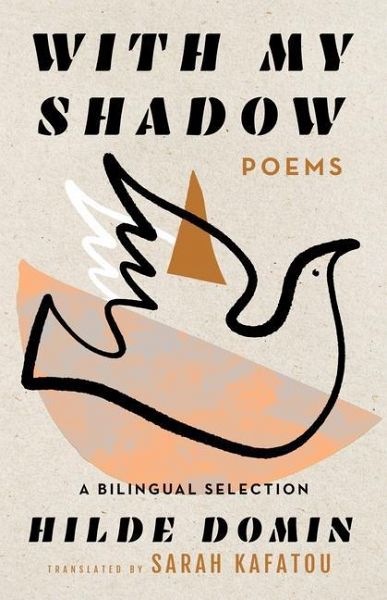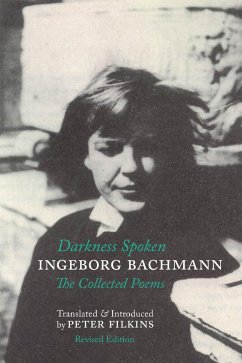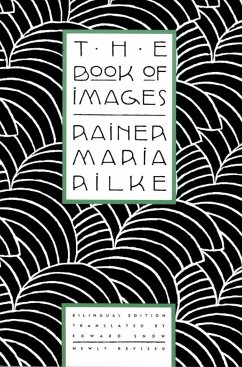
With My Shadow
The Poems of Hilde Domin, a Bilingual Selection
Übersetzer: Kafatou, Sarah
Versandkostenfrei!
Versandfertig in über 4 Wochen
15,99 €
inkl. MwSt.

PAYBACK Punkte
8 °P sammeln!
"There is an air of earnestness and sincerity about [Domin's] poems--they don't perform linguistic tricks . . . They are highly specific, idiosyncratic, and beautifully ordinary. Reading her, one is filled with a sense of natural wonder . . . Kafatou, who knew Domin, has sympathetically rendered a work as tender as it is beautiful . . . Kafatou's translations allow one to sense both Domin's self-possession and her insecurity." --Jewish Review of Books"These translations and poems are full of the refugee's loss and longing, made infinitely richer by Kafatou's love for the poet and poems. This i...
"There is an air of earnestness and sincerity about [Domin's] poems--they don't perform linguistic tricks . . . They are highly specific, idiosyncratic, and beautifully ordinary. Reading her, one is filled with a sense of natural wonder . . . Kafatou, who knew Domin, has sympathetically rendered a work as tender as it is beautiful . . . Kafatou's translations allow one to sense both Domin's self-possession and her insecurity." --Jewish Review of Books"These translations and poems are full of the refugee's loss and longing, made infinitely richer by Kafatou's love for the poet and poems. This is a deeply loving, compassionate collection of poems, remaining anchored, ultimately, in the exile's intertwined desire and nostalgia for home." --The Massachusetts ReviewNot to tire / but to hold out your hand / gently / as to a bird / to the miracleThis bilingual edition of the poems of Hilde Domin, an outstanding lyric poet of exile and return, brings her work to English-speaking readers for the first time.Hilde Domin fled Nazi Germany when, as a Jew, she was no longer safe there. For many years she lived in Italy and the Dominican Republic, where she encountered modernist currents in Italian and Spanish poetry. Returning permanently to Germany in the mid-1950s, she quickly found recognition as a poet of memory and reconciliation. For the rest of her long life she wrote and spoke in a tone poised between vulnerability and trust, on behalf of moral and civic values worth living for. As Sarah Kafatou writes in her Introduction, Domin "is always frugal: she reworks and transforms her repertoire of metaphors, images, themes, and ideas again and again, extending and refining, never explaining too much. Her lyric sensibility is concise, her syntax and vocabulary are simple and apt, her short lines break on the phrase, and she has an uncanny ability to hit the right note at exactly the right moment, according to the rhythm of the breath."Domin writes of "people like us we among them," providing a voice for victims of persecution everywhere. Today, with refugee populations on the move throughout the world and with rising intolerance and polarization, these poems of conscience, and of courage discovered in desperation, will speak directly to every reader.













